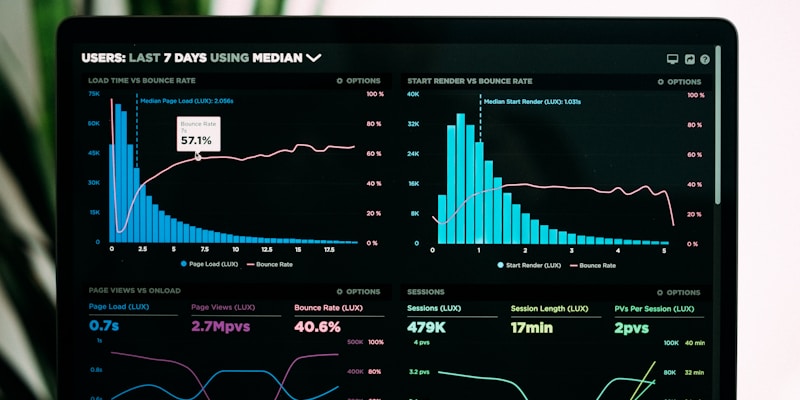YouTube Shorts Data Analysis Tips: How to Drive Content Creation with Data
Master the core techniques of YouTube Shorts data analysis, learn to extract value from key metrics like watch time, click-through rate, and engagement rate to optimize your short video content strategy.

YouTube Shorts Data Analysis Tips: How to Drive Content Creation with Data
YouTube Shorts, as an important platform in the short video space, has unique recommendation algorithms and user behavior patterns. Through in-depth data analysis, creators can better understand audience needs, optimize content strategies, and improve video performance.
Core Data Metrics Analysis
1. Watch Time
Watch time is one of the most important metrics for YouTube's algorithm. For Shorts:
- Target: Watch completion rate over 70%
- Analysis Method: Identify audience drop-off points, optimize video opening and pacing
- Optimization Strategy: Capture attention in the first 3 seconds, maintain fast pace
2. Click-Through Rate (CTR)
CTR reflects the attractiveness of thumbnails and titles:
- Healthy Range: 4-10%
- Influencing Factors: Thumbnail design, title copy, posting time
- Improvement Tips: A/B test different thumbnail styles
3. Engagement Rate
Includes likes, comments, shares, and subscriptions:
- Calculation Formula: (Likes + Comments + Shares) / Views × 100%
- Industry Benchmark: 2-5% is considered good
- Improvement Methods: Encourage interaction, reply to comments, create topics
Data Collection Strategies
Using YouTube Shorts Crawler
Our crawler tool can help you systematically collect data:
// Example: Analyze common characteristics of popular Shorts
const analyzePopularShorts = (data) => {
const insights = {
optimalDuration: calculateAverageDuration(data),
topHashtags: extractTopHashtags(data),
bestPostingTimes: analyzePostingTimes(data),
commonElements: findCommonElements(data)
};
return insights;
};
Competitive Analysis Key Points
- Content Theme Trends: Analyze popular content from similar creators
- Publishing Time Patterns: Find when target audience is most active
- Hashtag Usage Strategy: Research effective hashtag combinations
- Visual Style Preferences: Observe popular visual elements
Data-Driven Content Optimization
Content Planning
- Topic Selection: Based on search volume and trend data
- Publishing Schedule: Create timeline based on audience active hours
- Series Strategy: Use data to validate series content feasibility
Real-time Adjustments
- Monitor 24-hour post-publication data: Quickly judge content performance
- A/B Testing: Compare effectiveness of different versions
- Timely Optimization: Adjust subsequent content based on real-time feedback
Advanced Analysis Techniques
1. Audience Insights Analysis
- Geographic Distribution: Understand audience sources, optimize posting times
- Device Preferences: Importance of mobile optimization
- Discovery Paths: Analyze how users find your content
2. Trend Prediction
- Keyword Heat Changes: Early positioning for trending topics
- Seasonal Patterns: Capitalize on holiday and event marketing opportunities
- Algorithm Change Adaptation: Timely strategy adjustments for platform updates
3. ROI Analysis
- Input-Output Ratio: Calculate content production costs vs. returns
- Conversion Rate Tracking: From views to subscriptions/purchases
- Long-term Value Assessment: Sustained impact of content
Tool Recommendations
Data Analysis Tools
- YouTube Analytics: Most accurate official data
- YouTube Shorts Crawler: Bulk data collection
- Third-party Analytics Platforms: Social Blade, VidIQ, etc.
Automated Workflows
# Example automated data collection and analysis script
import pandas as pd
from youtube_crawler import ShortsCrawler
def daily_analytics_report():
crawler = ShortsCrawler()
data = crawler.get_recent_data()
# Generate analysis report
report = analyze_performance(data)
send_email_report(report)
return report
Practical Case Studies
Case 1: Food Shorts Optimization
Background: Food blogger wants to improve video performance Data Findings:
- Best performance when published during dinner time
- 30-45 second duration most popular
- Side dish introductions more engaging than cooking process
Optimization Results:
- 40% improvement in watch completion rate
- 60% increase in engagement rate
- Doubled subscription conversion rate
Case 2: Tech Review Channel Analysis
Challenge: How to stand out among numerous tech channels Strategy:
- Focus on new product launch reviews
- Use data to identify features audiences care about most
- Optimize thumbnail design to highlight product features
Results:
- 35% increase in average watch time
- CTR improved from 3% to 8%
- 300% growth in monthly views
Common Pitfalls to Avoid
Data Misinterpretation
- Don't focus only on absolute numbers: Pay attention to trends and ratios
- Avoid short-term judgments: Observe at least 2-4 weeks of data
- Consider external factors: Impact of holidays and trending events
Over-optimization
- Maintain content quality: Data-driven doesn't mean abandoning creativity
- Balance algorithm and audience: Cater to algorithm while creating real value for viewers
- Avoid homogenization: Data guides direction but maintain uniqueness
Conclusion
Data analysis is a key factor for YouTube Shorts success, but not the only factor. Excellent content creators combine data insights with creative expression perfectly, understanding audience needs while discovering innovation opportunities in data.
Remember: Data is the compass, creativity is the engine, and continuous optimization is the guarantee of success.
Tool Recommendation: Use our YouTube Shorts Crawler tool to help you collect and analyze data more efficiently, providing strong support for content creation.
Want to learn more? Join our Telegram Community to exchange experiences with other creators.